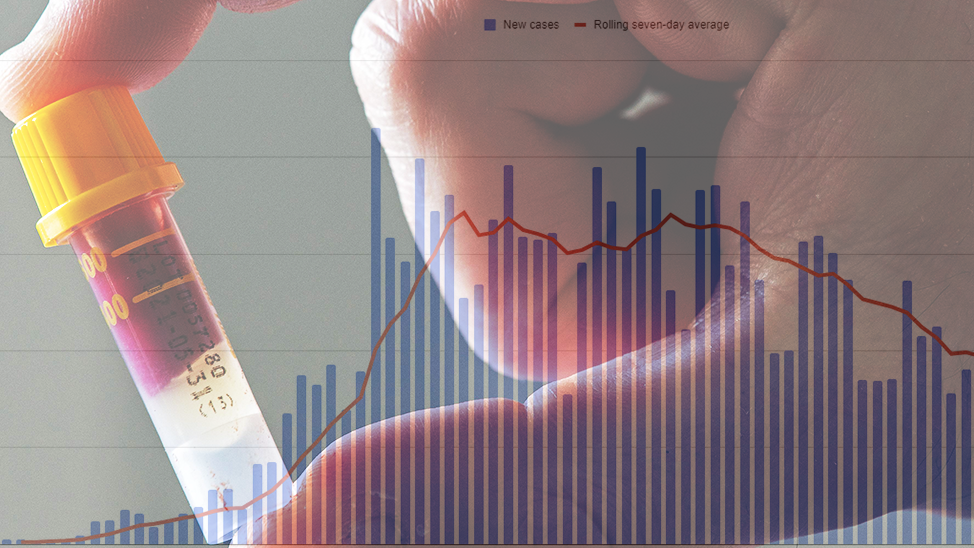Police to enforce virus lockdown with fines
- Published
- comments
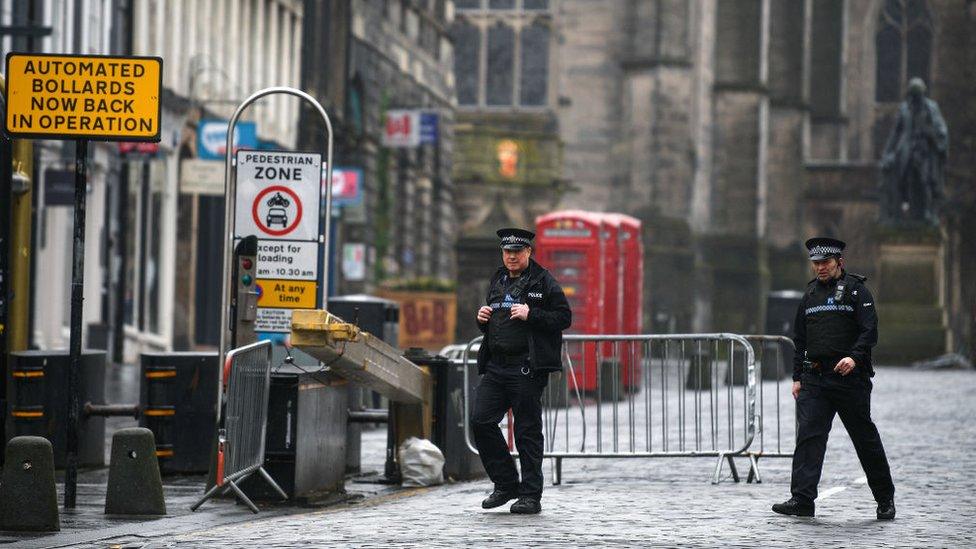
People who do not comply with social distancing rules in Scotland could be fined by the police, First Minister Nicola Sturgeon has said.
Emergency legislation has been passed at Westminster to curb the spread of coronavirus.
Ms Sturgeon said it meant Police Scotland could have new powers as early as today to enforce social distancing.
There have now been 894 confirmed cases of the virus in Scotland, with 25 people having died.
This was an increase of 175 confirmed cases and three deaths since Wednesday. The actual number of cases is likely to be much higher.
The new powers will allow police to hand out fixed penalties to anyone caught flouting the social distancing rules that were imposed earlier this week, which have left the whole of the UK effectively in "lockdown".
Ms Sturgeon said these were "last resort" measures, but that "ultimately this is about saving lives".
Police Scotland's Chief Constable, Iain Livingstone, told BBC Radio Four that officers would be able to instruct people to go home, and "to use reasonable force if required" - but said the power to make arrests was an "absolute backstop".
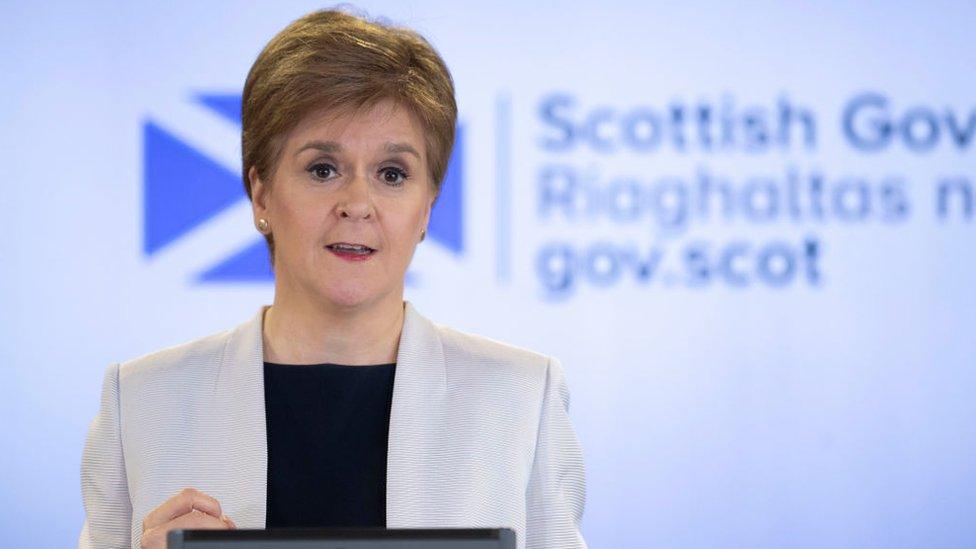
Nicola Sturgeon said she expected the vast majority of people to "do the right thing"
People across the UK have been urged to stay at home to help slow the spread of Covid-19 and reduce pressure on health services.
Only limited trips out of the house are to be permitted - for exercise, to buy vital supplies or to attend essential work - and gatherings of more than two people, unless they are from the same household, are banned.
The first minister said that "those found not to be acting in line with regulations can be made to return home".
And she said police officers will also have the power to give out "prohibition notices" and to close businesses and premises if needed.

People could also be given spot fines - the level of which is currently being decided - "and ultimately if necessary be prosecuted", Ms Sturgeon warned.
The first minister said she hoped the new powers would not have to be used, with officers taking a "soft approach to enforcement" - but "they will have the power to act if that is deemed necessary".
The first minister said she expected the "vast majority" of people to "do the right thing" and comply with social distancing voluntarily.
She said: "This will get harder with every day that passes, to stay at home and follow all of the advice, but it remains essential that we all do so.
"This has to be a collective effort. The power to stop this epidemic rests with each and everyone of us as individuals."
Mr Livingstone later said there had been "overwhelming levels of compliance" with the new regulations, and that officers had already been speaking to people to "make it very, very clear what the expectations are".
He said: "If there is continued defiance, the absolute back-stop is a power of arrest. I would expect that to be used very, very infrequently, if at all, but I do think it is important that people know that that power is there."


The NHS in Scotland is scaling up to cope with the coronavirus crisis, and the country's chief medical officer says she believes we are behind London and the rest of England in terms of the accelerating caseload. This means the lockdown may have a bigger impact here.
However, Scotland is still facing significant capacity issues. The authorities say they are on track to double intensive care capacity, and then want to quadruple it.
The postponement of elective surgery has meant they are just short of freeing up 3,000 other hospital beds.
There has also been a lot of talk about "field hospitals". One interesting point made at this morning's briefing was that they are still saying the empty Sick Children's hospital in Edinburgh is not safe to use.
Even if they look elsewhere, a field hospital could be for non-Covid 19 patients rather than the "fever hospitals" we've been seeing in China and elsewhere.

Coronavirus: '40,000 to 50,000 Scots' estimated to have virus
Ms Sturgeon also announced that an extra 1.5 million facemasks have been "brought back into use from the NHS Scotland central stockpile".
These masks had passed their expiry date, but have undergone "extensive testing which has shown them to be fit for use".
Health Secretary Jeane Freeman said there was no shortage of personal protective equipment (PPE) for frontline health workers, with supplies being monitored "daily".
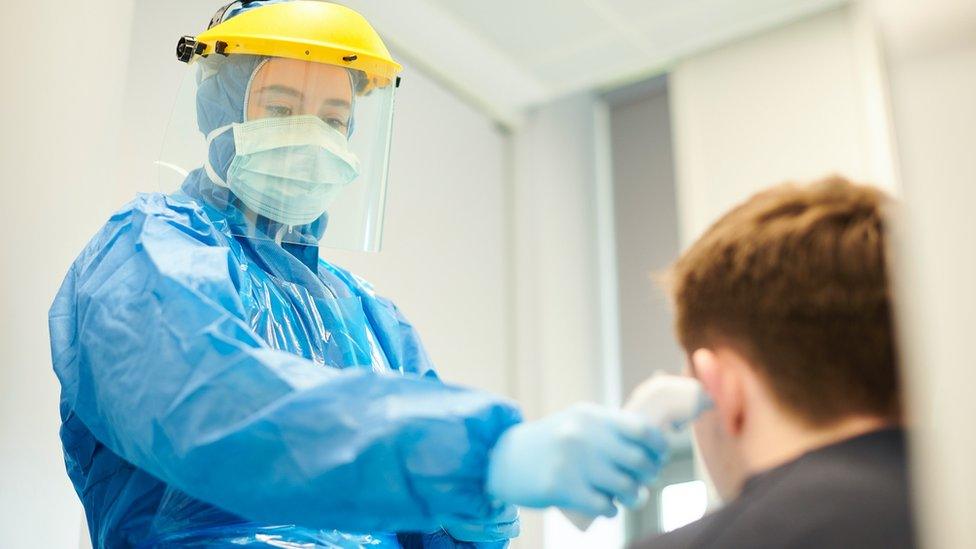
World Health Organisation guidelines currently recommend health staff wear a full gown and visor
She said: "We are paying very close and detailed attention to the overall stock of PPE for our health and social care staff, and we have now taken over the ordering, supply and distribution of PPE to social care and care at home staff.
"As of today we have no shortages. We are increasing the distribution routes and networks to ensure the supplies people need get to where they are needed, including in remote and rural areas, as quickly as possible.
"The safety of our health and social care staff is of absolute critical importance, so we are taking every step we can to make sure they have the equipment they need, and we have orders in the pipeline to make sure stocks are replenished."

A SIMPLE GUIDE: What are the symptoms?
AVOIDING CONTACT: Should I self-isolate?
MAPS AND CHARTS: Visual guide to the outbreak

- Published26 March 2020
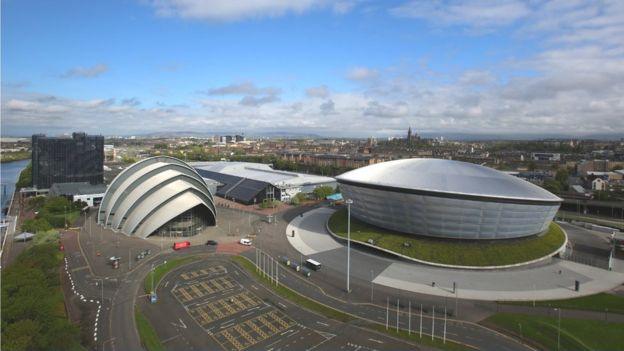
- Published22 July 2020
